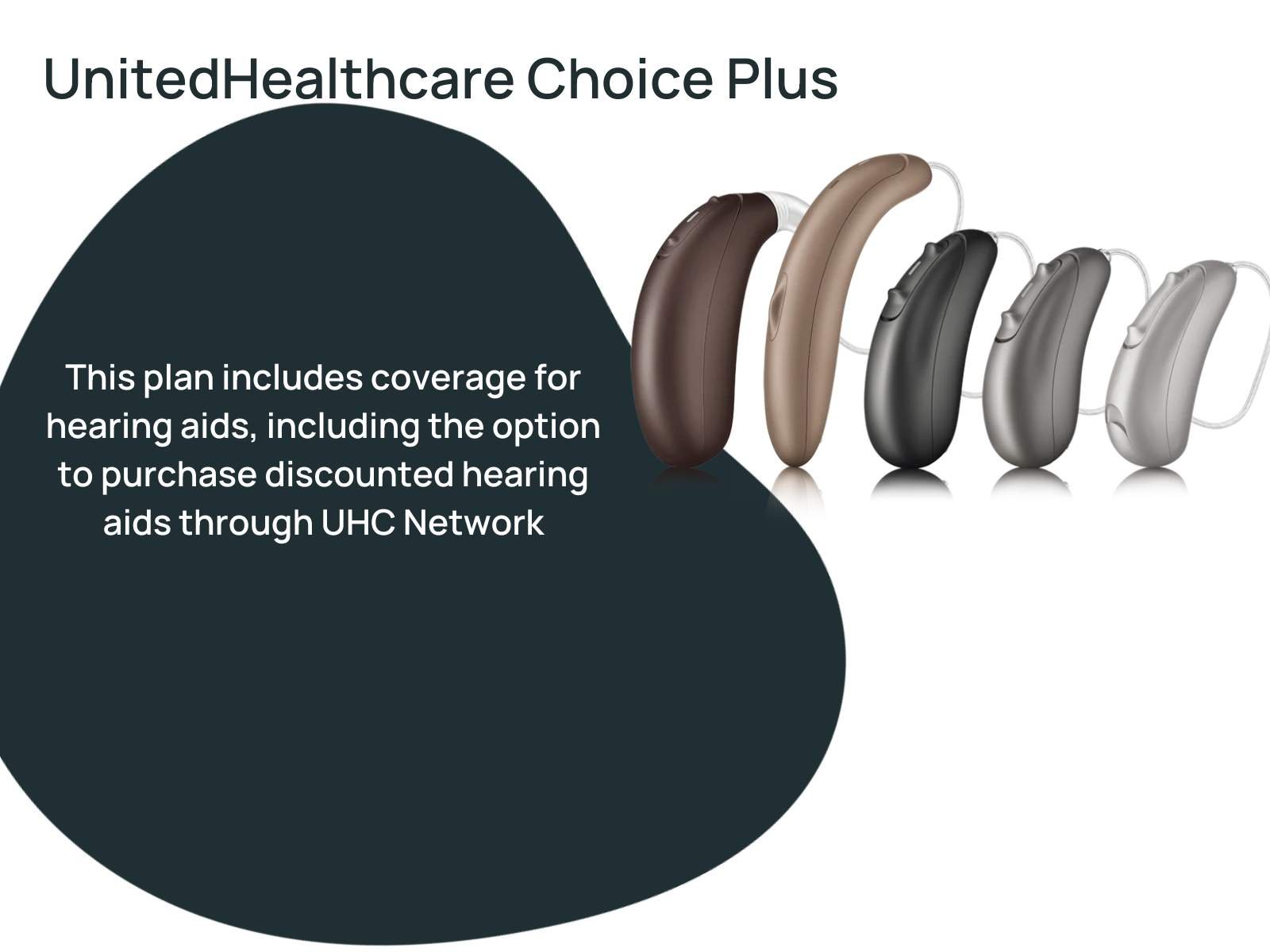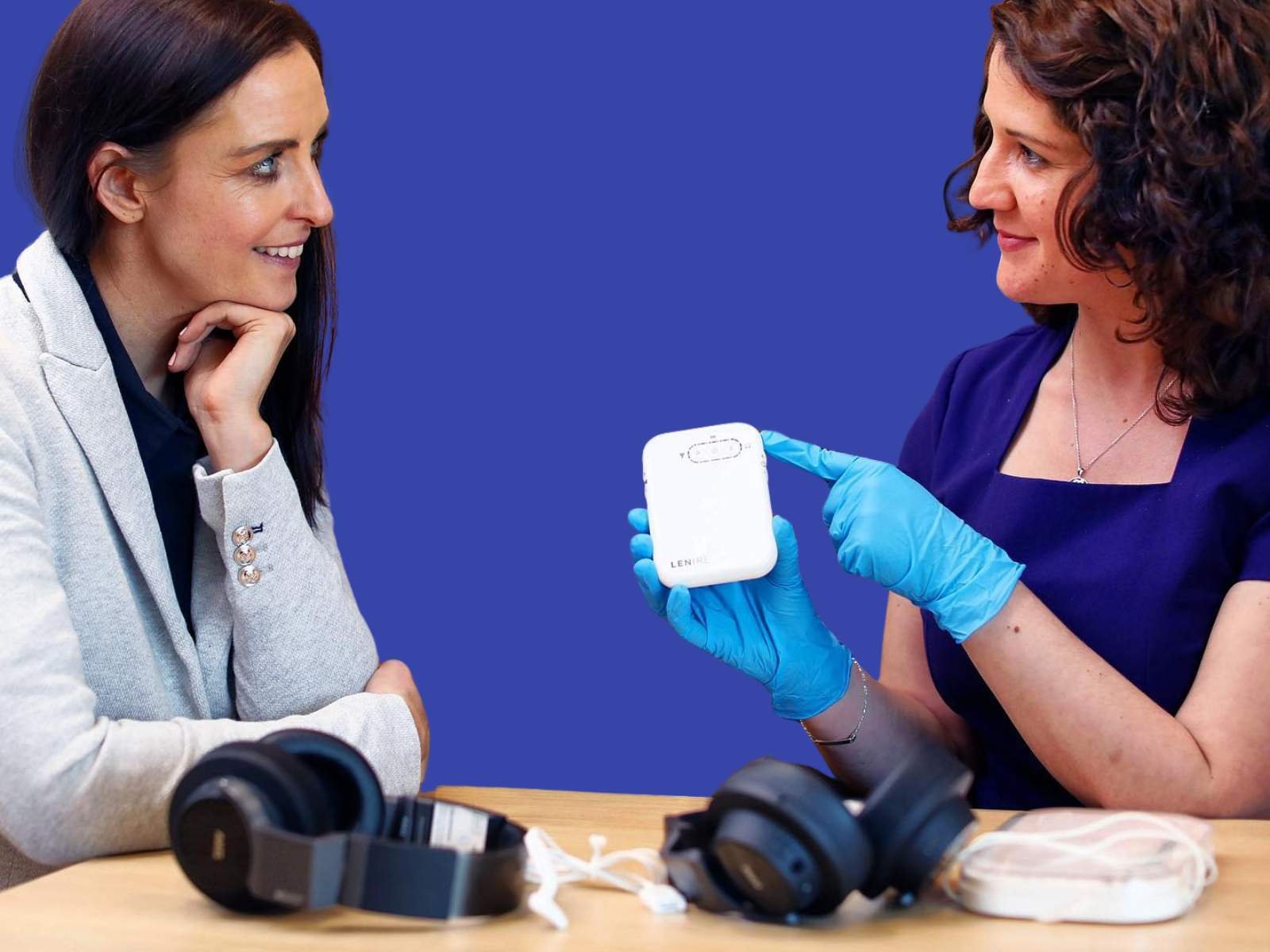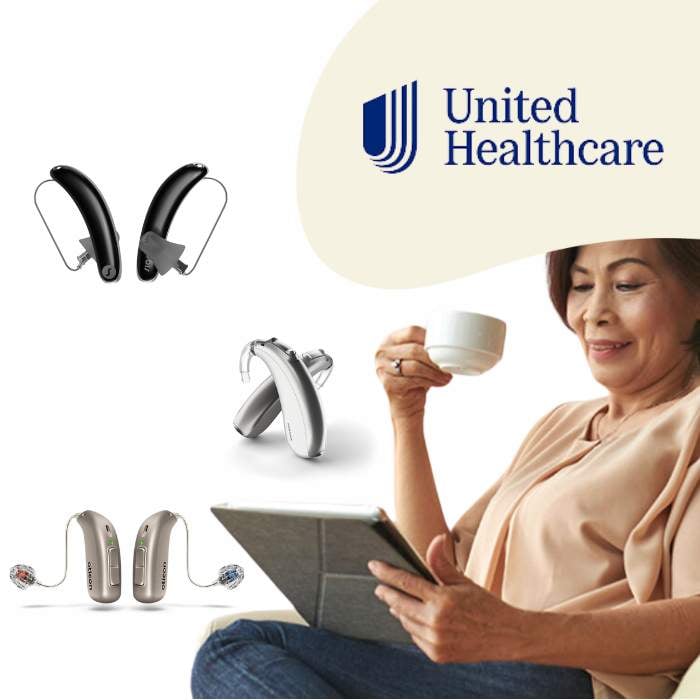As an experienced audiologist, I've had the pleasure of helping countless individuals improve their quality of life through better hearing. Over the years, I have worked hand-in-hand with patients, navigating through a sometimes tricky topic: health insurance coverage. Seeing the relief on my patients' faces is always gratifying when they realize that they can afford the hearing aids they need to reconnect with the world around them. When it comes to United Healthcare (UHC) insurance coverage, patients often raise a common question - "Does United Healthcare cover hearing aids?" It's a question I'm eager to offer some clarity on, thanks to the team at United Healthcare as well as my own experience as an audiologist.
UnitedHealthcare Hearing: A Brief Overview
UnitedHealthcare Hearing has more than 20 years of experience helping to connect members with affordable and accessible hearing health care. With a network of more than 7,000 hearing provider locations nationwide, it gives members access to hearing tests, consultations and follow-up care, as well as a wide selection of prescription and over-the-counter hearing aids from the industry’s top brands.
UnitedHealthcare Hearing is part of UnitedHealthcare. UnitedHealthcare is the health benefits business of UnitedHealth Group, a health care and well-being company working to help build a modern, high-performing health system through improved access, affordability, outcomes and experiences. UnitedHealth Group also includes Optum, a business that delivers care aided by technology and data, empowering people, partners and providers with the guidance and tools they need to achieve better health.
Understanding UHC's Coverage for Hearing Aids
Like most insurance plans, the coverage for hearing aids under UnitedHealthcare varies depending on the specific plan and its associated benefits. However, UHC has made significant strides in recent years to enhance its coverage of hearing aids for adults and children.
UHC generally offers coverage for medically necessary hearing aids for individuals of all ages. Medically necessary refers to any treatments or devices deemed essential in treating a medical condition. In this case, the medical condition would be hearing loss. As such, if your audiologist determines that hearing aids are necessary for your overall health and well-being, UHC's plans typically offer options that significantly cover or reduce the cost of hearing aids for those who qualify. You'll find more specifics by plan in the following sections.
Pros and Cons
Pros
When it comes to hearing aids, there are pros and cons to getting hearing aids through UHC insurance. Some of the pros include:
- When it comes to hearing aids, there are pros and cons to using UnitedHealthcare Hearing. Some of the pros include:
- a large network of over 7,000 hearing health care provider locations
- typically lower costs than most plans
- generally good benefits for a reasonable price
- UnitedHealthcare Hearing also offers over-the-counter hearing aids on uhchearing.com
Cons
However, some of the cons of UnitedHealthcare Hearing include:
- UnitedHealthcare Medicare Advantage does not offer coverage in Alaska
- Third party referral networks (for example, through a Medicare Advantage plan) have limitations in terms of follow-up visits and may come with co-pays

Popular UHC Plans
To better understand UHC's plans with hearing aids, let's take a look at the most popular ones. These include:
- UnitedHealthcare Choice Plus: This plan includes coverage for hearing aids, including the option to purchase discounted hearing aids through UHC Network.
- UnitedHealthcare Options PPO: Offers coverage for medically necessary hearing aids and a discount program for other hearing aids.
- UnitedHealthcare Medicare Advantage plans: Depending on your specific Medicare Advantage plan, there may be coverage for hearing aids, including discounts on over-the-counter and prescription options.
It's essential to note that each plan may have different requirements and limitations regarding hearing aid coverage. It's always best to check with UHC directly and check your plan details.
Dual Eligible Plans
United Healthcare also offers dual-eligible plans for individuals who qualify for both Medicare and Medicaid. These plans provide an allowance of approximately $1,100 for hearing devices, which is generally enough to cover standard-level hearing technology. This allowance is a significant benefit for eligible people, making these vital devices more accessible and affordable. It's crucial, however, to check with UHC directly or speak with your healthcare provider to understand the details and eligibility criteria for the UHC Dual Complete plan.
Individual and Family Plans
United Healthcare offers a range of comprehensive plans for individuals and families, including the standard Platinum plan. This plan provides substantial coverage for hearing aids, up to $2,000 per ear every 36 months. This amount is generally sufficient to cover both standard and advanced-level hearing technology. However, it's important to remember that the benefits and coverage can vary based on the specific plan. Therefore, it's always advisable to review your plan benefits thoroughly to understand the extent of your coverage.
Medicare (AARP/UHC Medicare Advantage)
For members of the AARP there is an added benefit when it comes to hearing care. A hearing evaluation is typically included in the plan, which provides a crucial initial step in diagnosing and treating potential hearing issues.
When it comes to hearing aids, members can expect a co-pay ranging from $375 to $2,075, making these devices more financially accessible. However, it's important to note that a limit is imposed on the number of hearing aids that can be covered each year, with the maximum being two. As always, the specifics may vary based on the individual plan, so it's essential to thoroughly review your plan details or consult with a UHC representative for accurate information. All you need is your AARP membership number to save.
Employer Plans
For employer-based plans, specifics can vary based on the location. For instance, plans in states like Texas, Oklahoma, Oregon, and Washington provide coverage for one hearing aid per ear every 36 months, contingent on a fitting by an audiologist and a medical necessity. Additionally, these plans cover one earmold per ear annually, inclusive of replacements. However, hearing aid dispensing fees, batteries, accessories, cords, and assistive listening devices are typically only covered if specifically included in a state mandate.
How to Access UnitedHealthcare Hearing Benefits
Millions of UnitedHealthcare plan participants – including people with employer-sponsored and individual medical plans, as well as people enrolled in most Medicare Advantage plans – can purchase prescription hearing aids through UnitedHealthcare Hearing. Certain UnitedHealthcare members, including people enrolled in Medicare Special Needs Plans, group retiree and some commercial offerings, can access prescription hearing aids for as low as $0 out of pocket. Starting this year, coverage for select over-the-counter hearing aids was added to many plans. In addition to savings on hearing aids, members can access a no-cost hearing exam with a licensed hearing care professional and follow-up care appointments.
UnitedHealthcare Hearing also offers AARP® Hearing Solutions™ provided by UnitedHealthcare Hearing, which enables AARP members to purchase prescription hearing aids through UnitedHealthcare Hearing starting as low as $699 per hearing aid. The program also offers a no-cost hearing exam and consultation and follow-up care with a licensed hearing care professional. People do not need medical insurance through UnitedHealthcare to take advantage of the program’s discounts.
Through these programs, consumers and UnitedHealthcare plan participants can purchase and save on state-of-the-art hearing aids from most major hearing aid manufacturers and also have access to UnitedHealthcare Hearing’s national provider network of thousands of hearing health care professionals for no-cost hearing tests and hands-on fittings, adjustments and support.
It's essential to note that each plan may have different requirements and limitations regarding hearing aid coverage. It's always best to connect with UnitedHealthcare Hearing directly through www.uhchearing.com and check your plan details.

The Process: From Evaluation to Hearing Aid Fitting
The first step in obtaining hearing aids under a UHC plan is to schedule a hearing evaluation with a UHC in-network provider. This thorough assessment enables the provider to understand the extent of your hearing loss and recommend suitable hearing aids. Following the evaluation, you can discuss the various options available for treating your hearing loss and prices, which may vary depending on your specific UHC plan. The most affordable option is typically the UHC Relate model, provided through Unitron.
Once you have selected the hearing aids that best suit your needs and budget, you'll sign the necessary paperwork and place an order for the devices. After the hearing aids arrive, you will return to the provider for a hearing aid fitting. This step is crucial as it ensures the hearing aids are comfortable and properly calibrated to your unique hearing profile. Previously, UHC offered in-person or virtual hearing aid fitting appointments. Please note, however, that as of January 2024, UHC discontinued virtual fittings, meaning all fittings must be done in person at your provider's office.
What to Expect After the Fitting
As part of your UHC plan, you typically have a limited number of follow-up appointments to ensure the hearing aids serve their purpose effectively. These appointments are critical for adjusting the devices as needed and addressing any concerns you may have.
Please note that extra follow-up appointments beyond the number included in your plan may require a co-pay. Your hearing healthcare provider will discuss the specifics of your plan, including the number of follow-up visits covered and any associated costs, at the time of the fitting. Furthermore, you will receive paperwork detailing these policies, ensuring complete transparency and helping you plan your healthcare expenses accordingly.
Adjusting to Your Hearing Aids: Patience and Support
Adjusting to your hearing aids is not instant; it requires patience, time, and support. It's common to have questions or concerns during your trial period, and your UHC provider is there to help. Your provider will guide you through the adjustment process, providing essential information and support. This partnership ensures you can navigate this transformative period with confidence. Whether you have questions about functionality, comfort, or maintenance, remember that your provider is just a call, email, or text away. Open communication during this period is encouraged to ensure you get the most out of your new hearing aids.
Looking for tips on adjusting to hearing aids? Read more here.
Conclusion
Navigating the journey of hearing health care can feel overwhelming, but with a comprehensive and supportive plan like that offered by United Healthcare, you are never alone. By providing a range of plans and options, UHC ensures that hearing care is accessible and affordable for individuals, families, and employees alike.
Remember, understanding your coverage is critical to making the most of your plan, and contacting your provider with any concerns or questions is always encouraged. Here's to embracing the transformative power of hearing aids and stepping forward into a world of enhanced sounds and communication. You're improving not just your hearing but also your overall quality of life.






